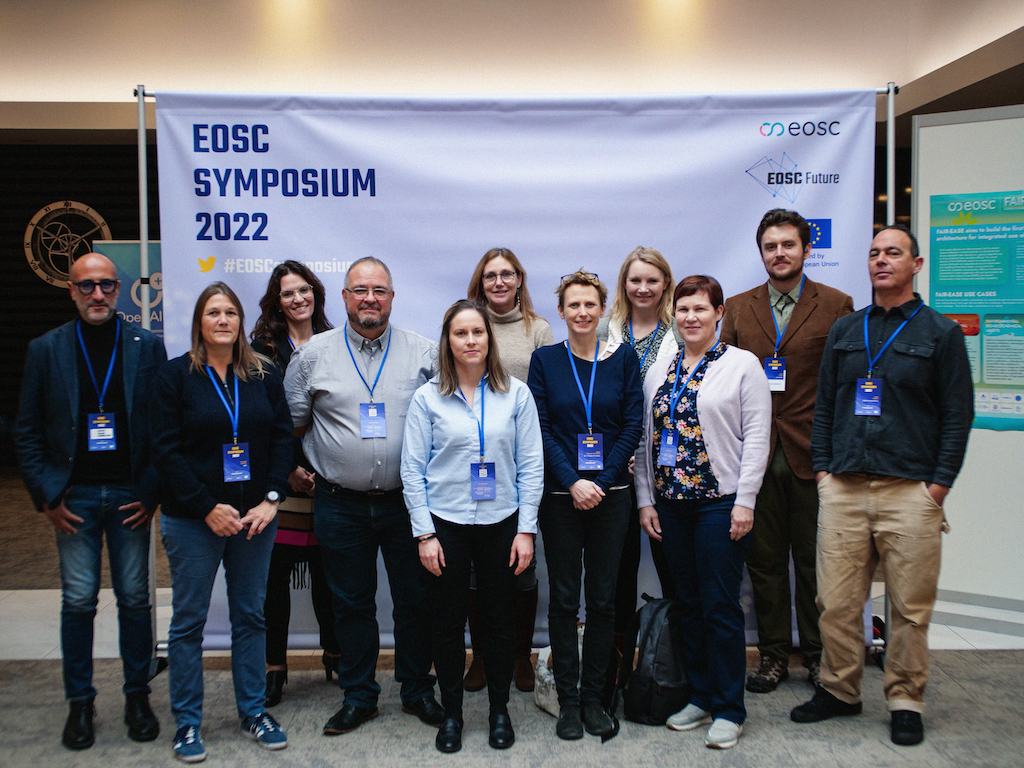
During the EOSC Symposium in Prague, FAIR-IMPACT organised two workshops about persistent identifiers (PIDs). The first workshop was organised on November 16th together with our sister project FAIRCORE4EOSC and the EOSC PID Policy and Implementation Task Force.
The breakout sessions
FAIR-IMPACT hosted a breakout session to discuss how the EOSC PID Policy responsibilities map to different stakeholders. This issue is important to achieve a shared understanding of its implementation and to support a FAIR service ecosystem.
Due to the complex service and PID landscape, diverse use cases and solutions, the EOSC PID Policy is written on a high level of abstraction. Describing the different roles in the PID ecosystem has been done in a way that, on the one hand, has been described as clear and comprehensive, but on the other hand, opens up diverse interpretations, which also became obvious during the workshops. This is why we feel extensive discussions are needed to ensure good coverage and cohesion of a service system that is reliable and functional. All actors in the PID service landscape should be familiar with the different concepts and terms, and there should be a shared understanding of how the EOSC PID Policy affects the implementation on a stakeholder level.
The EOSC PID Policy defines the PID authority, PID service provider, PID manager, PID owner and PID end user. Still, the roles, as named in the document, can be understood in many ways. For instance, from an end-user perspective, the PID manager can easily be perceived as a PID service provider, as it often is a repository that provides the researcher with needed PIDs. The fact that often there is another service, i.e. the PID service provider, behind a repository is not obvious, and neither should it necessarily be that to the occasional data publishing researcher. But there needs to be a clear and explicit policy agreement between the authority, manager and PID service provider. Especially the responsibility of the PID owner must be unambiguous, as well as the understanding of exactly who that is in any given situation.
Looking at the immediate outcomes of the workshop, there might be a need to further discuss funding of the PID services. The responsibilities of the PID owner and the PID manager should be made understandable to all parties involved.
FAIRCORE4EOSC conducted the second breakout session and reviewed the current PID Policy provisions from the perspective of compliance measurement. Feedback was obtained from around 20 participants on the likely mechanisms for measurement of compliance, and some provisions were identified as requiring reformulation or amendment to make them measurable. Not all the provisions could be evaluated in the available time, and the survey of the community will be widened and concluded using an additional event or channel. Feedback will be shared with the EOSC PID Policy Task Force.
The workshop
The “Towards a shared value proposition for Persistent Identifiers in EOSC” workshop took place on November 17th. The goal was to discuss the roles and benefits of PIDs across EOSC and aimed to gather feedback from PID providers and other stakeholders in the EOSC community. After short presentations from CSC and DataCite, we facilitated a community discussion on whether and how the EOSC PID Policy roles match existing PID infrastructures, as well as the pain points and benefits of PIDs for EOSC users.
Overall, thirty delegates in person and ten remote attendees participated in the session. The feedback received will be used to help develop a value proposition for PIDs across EOSC, one of the key contributions of the FAIR-IMPACT project.
The results of both workshops are still being processed, but there will be more outputs and more discussions initiated by the FAIR-IMPACT project.



